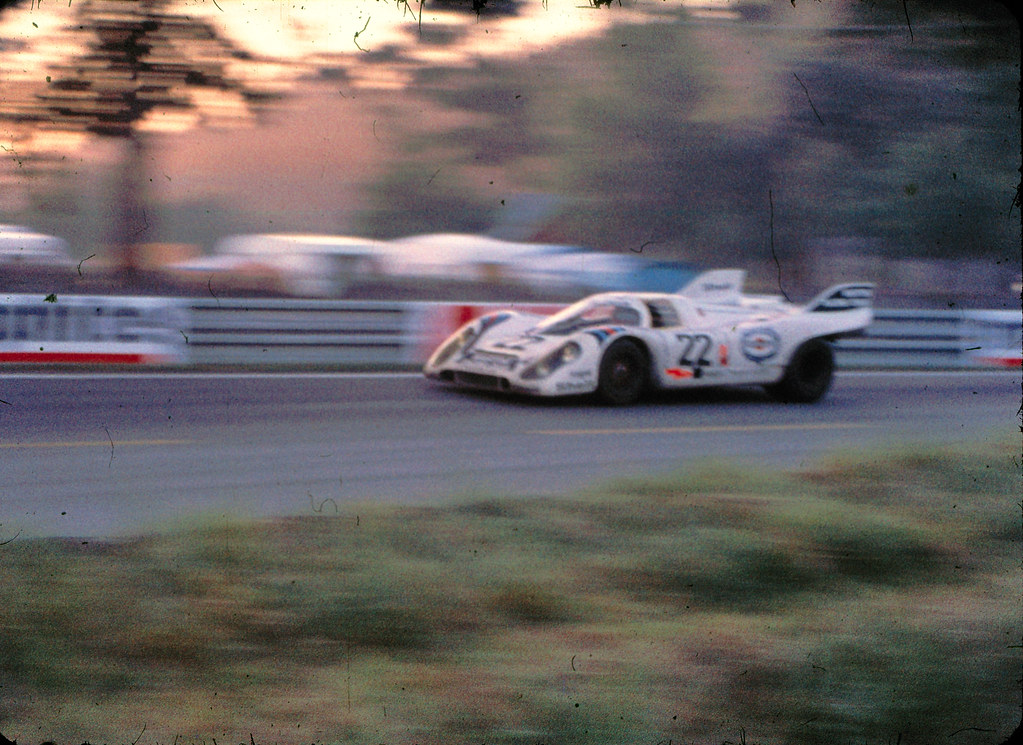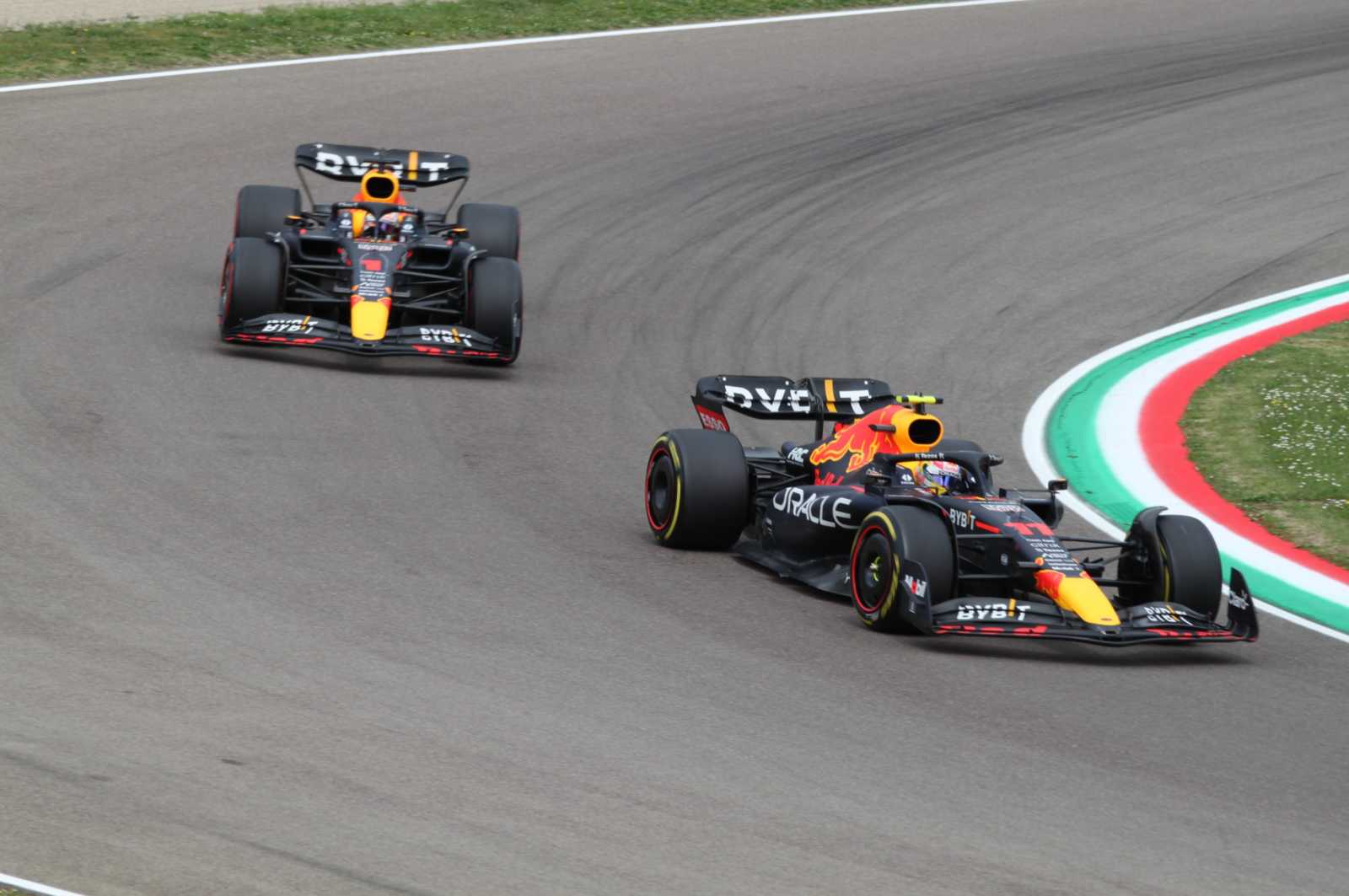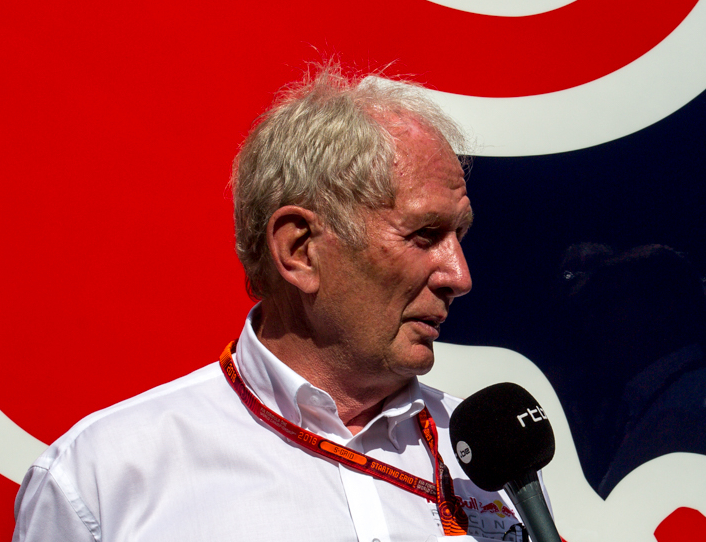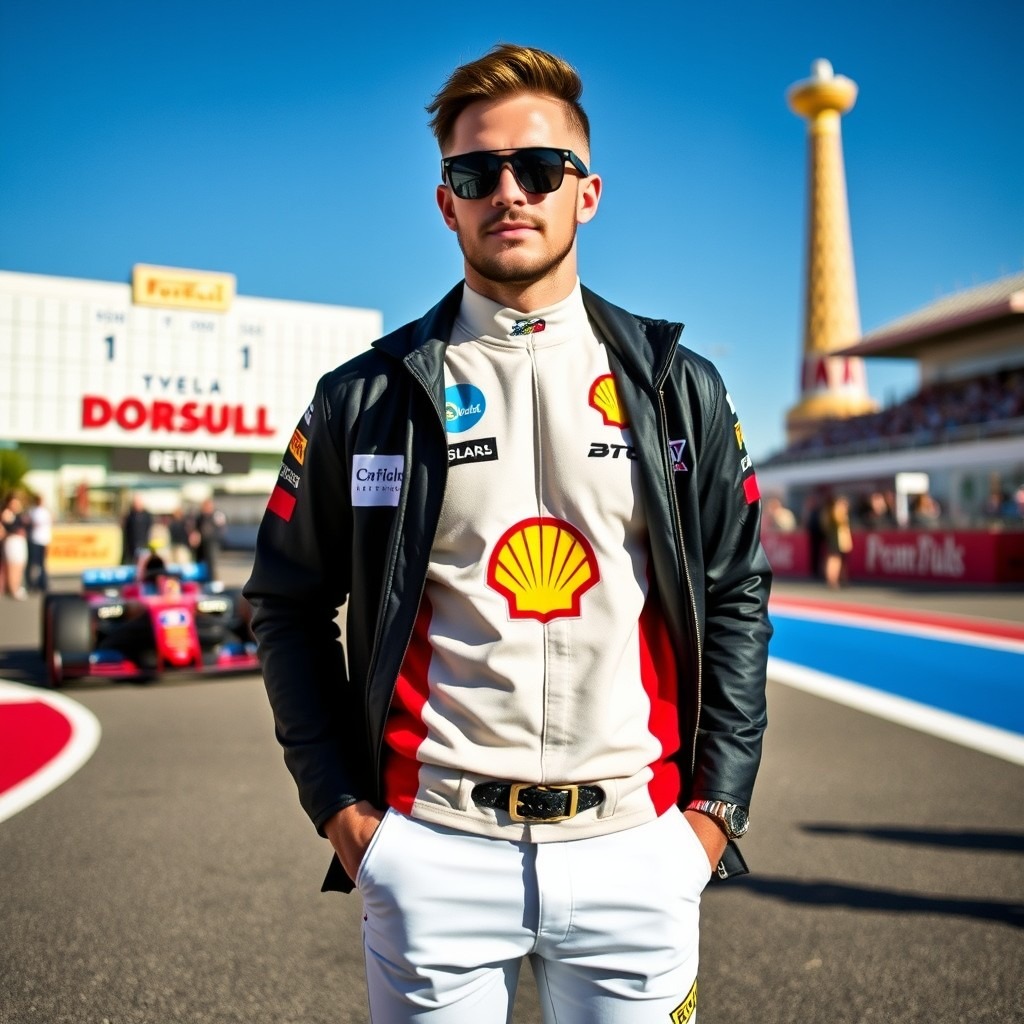Helmut Marko is among our favorite personalities in the Paddock of Formula 1 because he is the knowledge storehouse of the sport and one of the cornerstones of the Red Bull F1 Team. Being Bulls’ advisor, his name often resonates with stirs in Formula 1, and needless to say, for a reason. Fans and drivers know Helmut Marko as one of the most influential persons, but fewer of them know him as an Austrian racing driver with his own story of rise and fall. Let’s figure out who Helmut Marko is and what makes him exceptional in Formula 1.
The Racing Past
Helmut Marko is one of the most respected personalities in Formula 1 because he came up from racing drivers and first-hand to know what it is to be an F1 driver.
Helmut Marko’s F1 career started in 1971, with driving for the BRM team, and competed in several Formula 1 Grands Prix in 1971 and 1972.
Although he didn’t score points in Formula 1, he won the iconic 24 Hours of Le Mans in 1971. With Gijs van Lennep, he drove a Martini-Porsche 917K and broke a distance record of 5,335.313 km, maintaining an impressive average speed of 222.304 km/h, a record that stood unchallenged until 2010.
Sounds unconvincing, you may say. Partly just because success could have been more lived.

The Mental Toughness
The mental power sets Helmut Marko apart from others and allows him free in his comments because, like Niki Lauda, he overcame a terrible accident and returned to Formula 1 with a brand new perspective on the sport.
Thus, on the 1972 French Grand Prix, the stone from Ronnie Peterson’s March pierced Marko’s helmet visor and damaged his left eye, causing Marko to become blind.
Marko was just 28 years old, but to partly lose vision for a driver meant to retire from Formula 1 forever.
Marko has spoken many times about the accident, which made him realize the fragility of life and gave him a deeper appreciation for the risks drivers take every time they step into a car.
However, we believe it taught him another lesson he often tells young drivers. Marko leads Red Bull’s driver development program and is responsible for all rookie drivers in Red Bull and its younger sister, Visa Cash Racing Bulls or simply RB.
Marko’s lesson is that no matter what other people say and do about you, focus on your needs and wants; be better of yourself. We have often noticed such moods at the time when Max Verstappen, Carlos Sainz, and Pierre Gasly had raced in Scuderia Toro Ross or RB currently.
So, the accident didn’t break Marko, but he was forced to look for new perspectives in Formula 1, and after a while, he found that one.
The Wit Mind
Helmut Marko is very wit person. Yep, sometimes he can go far in his comments, like it happened with Sergio Perez. When he finished second to team-mate Verstappen in the Italian Grand Prix, Marko suggested the Mexican driver’s form was due to his ethnicity.
However, we believe it is an old-school way of cheering or scolding the drivers. Marko has his perspective based on his past. So, hitting with press and media his words can wrapped into the wrong way. Marko says what he is thinking about any driver, without exception, whether it is Verstappen or even Lewis Hamilton.
In some terms, Marko’s comments have to be said behind closed doors, but Red Bull’s chief speaks out openly, and that makes him extraordinary in Formula 1.
Besides, people in Paddock call Marco Doctor Helmut Marko because he completed his law degree and obtained a doctorate in 1967, a few years before he backed to Formula 1.
The Impartiality
The impartiality is a significant feature that makes Red Bull’s chief so unique, but it was what he reached step by step.
Working for years as Gerhard Berger and Karl Wendlinger’s manager, he came as RSM Marko’s team principal in 1989, competing in Formula 3 and Formula 3000 before switching to the Red Bull driver development program in 1999.
And yes, it was Helmut Marko who stood behind the success of Sebastian Vettel and Max Verstappen in Formula 1, while Daniel Ricciardo, Carlos Sainz Jr., Pierre Gasly, Alex Albon, Daniil Kvyat and Yuki Tsunoda were among his wards.
His terms are pretty clear. You will be the fastest, or you can leave the team now, as it happened with Nyck de Vries. Despite his two titles as Formula E champion, Nyck de Vries seemed unconvincing to Marko, as in 11 races he scored only 2 points and with a ‘soft touch’ of Helmut Marko forwarded Nyck de Vries’ retirement. Despite it being mid-season, RB (Alpha Tauri) replaced him for Daniel Ricciardo.
So, Helmut Marko is that person who doesn’t hesitate to say no to the drivers. He is focusing on the results at the track and keeping team interests first. Some critics have argued that his approach is too aggressive and that he is willing to take risks that other teams would not.
Red Bull’s Devoted Face
Marko found his true calling and has been working in Red Bull in its younger sister RB since their launch in Formula 1. Despite the many other possibilities, alongside the Bull’s principal, Christian Horner, and designer Adrian Newey, he was instrumental in the team’s rise to dominance.
Today, Helmut Marko is a trailblazer in Red Bull Racing’s strategy meetings and is responsible for the team’s decision-making. His area is opening new racers and searching for the most talented drivers. In simple terms, Marko is responsible for all the drivers racing in Red Bull, and Visa Cash RB is undoubtedly the best on the grid. Teams break contracts without explanation if they don’t meet expectations.

Concluding
What makes Dr. Helmut Marko an extraordinary personality in Formula 1? Marko knows what Formula 1 is in its origins, as he came from the drivers.
He overcame the dramatic accident but backed to this sport. After worthy experiences as a drivers’ manager, his knowledge and gift of foresight for talented racers make him an essential figure for the team.
Besides, Marko is endowed with wit and impartiality – necessary features in such a competitive sport.
Despite his personal life and interests outside of racing being out of the public eye, we get used to his image as one of the evil genius behind the scenes, but in fact, Marko is the man behind the success of the Red Bull Racing F1 team.
After all, Helmut Marko proves again that Formula 1 is more than just a sport; it is the most fierce competition.



